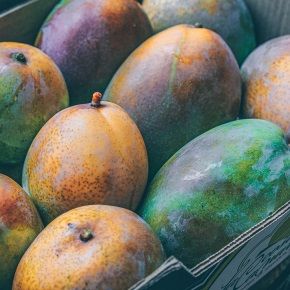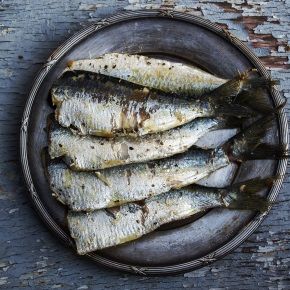Antioxidants are celebrated for a whole host of health benefits but one recent study may have unearthed a new and surprising application for one antioxidant hero.
Read more in this week’s Nutrition News here.
Is astaxanthin the key to sport recovery?
Antioxidants are thought to support the body against oxidation, which can lead to inflammation and injury after exercise. One study, reported by Natural Products Insider, found that astaxanthin was more effective and showed more relative antioxidant activity than over 20 other well-known antioxidants.
Muscle tissue can become damaged after exercise as a result of the free radicals and other reactive oxygen species that can cause stress and inflammation. Antioxidants, like astaxanthin, can neutralise these free radicals, positively impacting the recovery process after exercise.
According to the article, there is building research of the potential benefits and applications of astaxanthin in sports nutrition. Other studies cited in the article hint at the antioxidant’s possible role in strength endurance, aiding sportspeople to train for longer, with reduced recovery times.
Astaxanthin can be obtained through diet by eating salmon, which is astaxanthin rich due to the salmon’s diet of algae-eating krill, or through supplementation, usually in astaxanthin soft gel or capsule form.
Study links vitamin E with reduced cognitive decline
Vitamin E is widely recognised as an important vitamin for skin health support but a recent study has extended its perceived health benefits to potentially include brain health.
The study, which was reported by NutraIngredients, found an association between a diet rich in vitamin E and carotenoids and healthy cognitive function. Looking at over 1250 participants in the Healthy Ageing in Neighbourhoods of Diversity across the Life Span (HANDLS) study, researchers evaluated the impact of oxidative stress on the brain and whether antioxidants could have a positive effect.
A consistent synergism between carotenoids and vitamin E in relation to baseline cognitive performance in verbal memory, verbal fluency, attention, working memory, and executive function was found.
While the results are promising, the study’s authors stress that the research shows partial evidence to the effects of vitamin E and carotenoids on brain health support and that further studies are needed.
Examine’s guide to testosterone
Normal testosterone levels are hugely important for men’s health but not many people are aware of the huge variety of factors that can affect testosterone levels. This guide by Examine evaluates some of the main factors and what men can do to help maintain healthy levels.
While women also need testosterone in small amounts, for men, low levels could lead to low libido, mood and developing metabolic syndrome. Few people are aware that diet could have a huge role in maintaining good testosterone levels with magnesium, zinc, and vitamin D all playing a part.
Testosterone naturally decreases with age, although there is some disagreement as to why this is, some put it down to a result of the ageing process whereas others believe it is due to lifestyle factors changing as we age, where we might spend less time exercising and focussing on our appearance and more time working and being with family. Some men don’t experience any symptoms of reduced testosterone but, for those that do, maintaining a healthy weight, exercising without overtraining, and ensuring a varied diet with enough vitamins and minerals are ways of maintaining healthy testosterone levels.
Symptoms of low testosterone levels include feeling lethargic and having low mood and, to make matters worse, these symptoms can quickly turn into causes of low testosterone levels, where you may become overweight and stressed, making the problem worse. However, by recognising these symptoms and seeking the advice of a healthcare practitioner, dietary and lifestyle changes can be easily made to improve these levels.
Share your thoughts
Agree with the findings in this week’s Nutrition News? Share your thoughts with us on Facebook and Twitter.
 Alison is Director and Founder of Metabolics who writes about Metabolics updates, events and natural healthcare. Her experience and passion for natural supplements and healthcare comes from her years of experience as a practising osteopath, having founded Metabolics in her search for high quality, natural products in her own work. Alison has been a qualified and practising Osteopath since 1981 and regularly gives seminars on a range of healthcare subjects to the wider practitioner community helping share her knowledge and experience.
Alison is Director and Founder of Metabolics who writes about Metabolics updates, events and natural healthcare. Her experience and passion for natural supplements and healthcare comes from her years of experience as a practising osteopath, having founded Metabolics in her search for high quality, natural products in her own work. Alison has been a qualified and practising Osteopath since 1981 and regularly gives seminars on a range of healthcare subjects to the wider practitioner community helping share her knowledge and experience.




